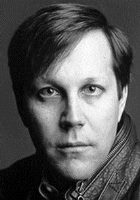California Hills In August Poem by Dana Gioia
California Hills In August
I can imagine someone who found
these fields unbearable, who climbed
the hillside in the heat, cursing the dust,
cracking the brittle weeds underfoot,
wishing a few more trees for shade.
An Easterner especially, who would scorn
the meagerness of summer, the dry
twisted shapes of black elm,
scrub oak, and chaparral, a landscape
August has already drained of green.
One who would hurry over the clinging
thistle, foxtail, golden poppy,
knowing everything was just a weed,
unable to conceive that these trees
and sparse brown bushes were alive.
And hate the bright stillness of the noon
without wind, without motion.
the only other living thing
a hawk, hungry for prey, suspended
in the blinding, sunlit blue.
And yet how gentle it seems to someone
raised in a landscape short of rain—
the skyline of a hill broken by no more
trees than one can count, the grass,
the empty sky, the wish for water.
This is a fine poem, well-crafted and well-written. I enjoy the cadence, the flow and the topic. It conveys very clear imagery, and I can easily envision the California hills, also having lived among them.
Dana talks about life that is surrounded by death. A uninhabitable field that looks as if there is no life holds an abundance of life. The eye can be very deceiving when we do not look close enough.
This poem has not been translated into any other language yet.
I would like to translate this poem
No better or worse then the massive attack the author had on similar poetry written in our shallow and unpoetic times in his book Does Poetry Matter? . The typed form is as those poems that exists as words on a page rather than sounds in the mouth and ear. This poem is no better or worse than its contemporaries. I was expecting the poet to carry his own staff, and present a modern work in the stance of Virgil.